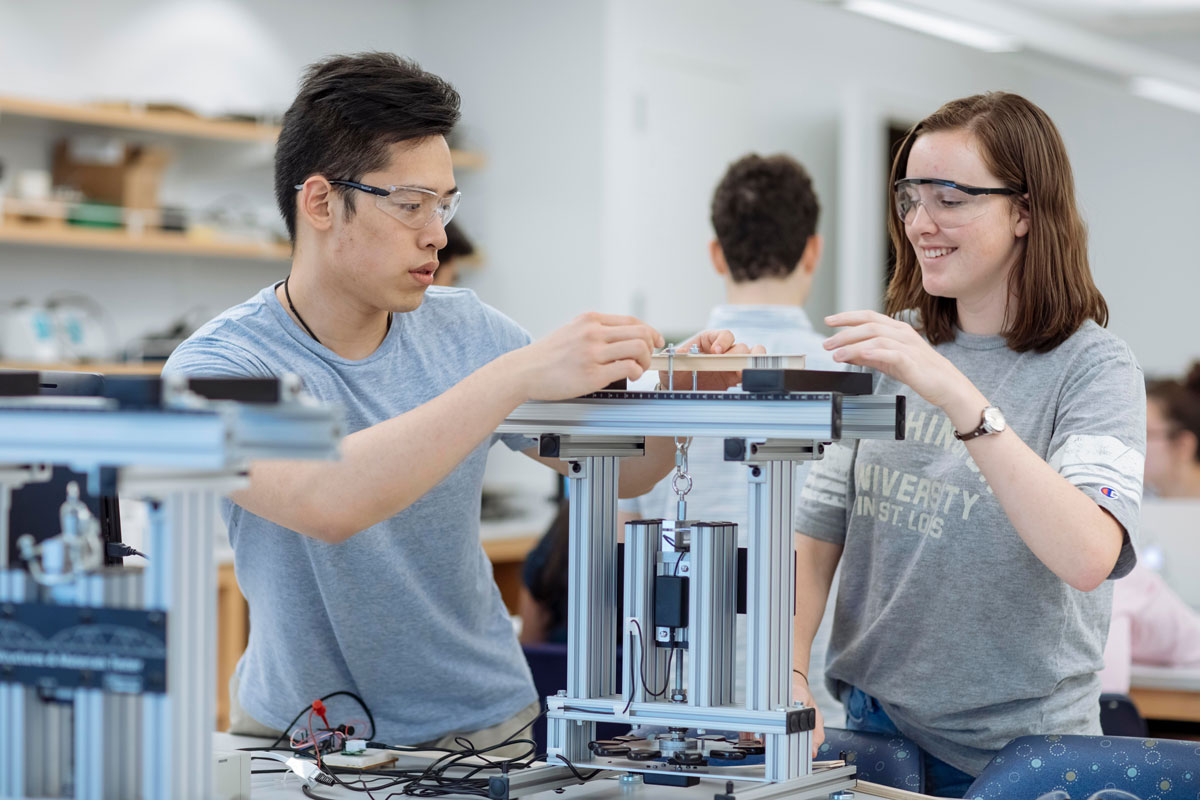It's easy to start your application.
Undergraduate Programs
Learn more about studying biomedical engineering at the McKelvey School of Engineering.

Studying biomedical engineering allows students to learn the principles of engineering and biology in order to solve problems from the molecular level to the entire human body.
In our nationally ranked program, students have the opportunity to work with engineering and medical faculty on projects ranging from surgical devices and imaging techniques to bioactive materials and drug-delivery systems.
Washington University in St. Louis offers a four-year curriculum leading to a baccalaureate degree, which is designed to prepare students for graduate school, medical school or for work in the industry. Biomedical engineers have a tremendous impact on the lives of people around the world, developing life-saving cures and improving quality of life.
The Bachelor of Science in Biomedical Engineering requires completion of the courses in the core curriculum, four upper-level engineering electives (tier), five humanity/social science electives and two general electives. Students in BME may also receive up to six units of academic credit for a research or design project.
More than 60 percent of undergraduate students take part in biomedical engineering research. Campus research opportunities include our Center for Innovation in Neuroscience and Technology Fellowship, the McKelvey Undergraduate Research Scholars program, the Summer Undergraduate Research Awards and the WashU BioSURF Program.
Double Majors
Students majoring in biomedical engineering may choose to double major within the McKelvey School of Engineering, leading to a second professional Bachelor of Science degree in one of the other engineering disciplines in four years.
Depending upon the second major chosen, total unit requirements may range from 140 to 148 (or fewer if the student enters with AP credits). Hence, some summer work may be necessary in order to complete a double major within four academic years. To determine the specific requirements to be satisfied for both degrees, students are urged to consult with an adviser in the second department and their four-year adviser as early as possible.
